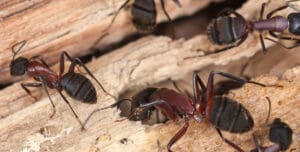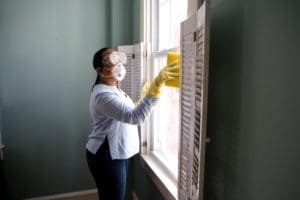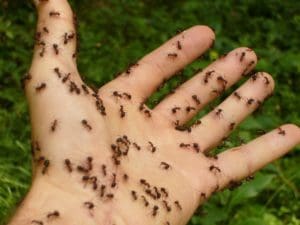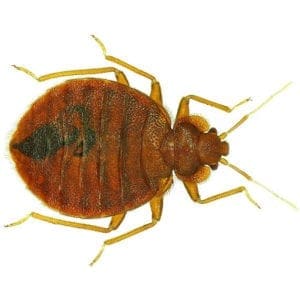

Home Pest Control: The Importance Of IPM In Residential Settings
November 8, 2023
Home pest control is a critical aspect of maintaining a safe and comfortable living environment. Unwanted pests can not only cause structural damage but also pose health risks to residents. Implementing effective pest control strategies is essential in preventing infestations and ensuring the well-being of your family. This article delves into the importance of home pest control, identifying infestations, and choosing the right pest control plan for your property to help you maintain a pest-free household.

What Are The Most Common Residential Pests?
Pests of all kinds infest homes, but these are some of the most common residential pests:-
- Insects: Common household pests include ants, cockroaches, and mosquitoes. Ants often invade kitchens in search of food, while cockroaches can spread diseases and trigger allergies. Mosquitoes are known for their itchy bites and ability to transmit diseases like malaria and dengue fever.
-
- Rodents: Mice and rats frequently seek shelter in homes, especially during colder months. They can cause significant damage by gnawing on wires and structures, contaminate food, and spread diseases such as leptospirosis and hantavirus.
-
- Termites: These silent destroyers feed on wood, causing extensive structural damage over time. They often go unnoticed until significant harm has been done, making regular termite inspections crucial for early detection and prevention.
-
- Bedbugs: Infamous for their nighttime feeding habits, bedbugs cause irritating bites and can quickly infest bedding, furniture, and clothing. Their presence can lead to sleep disturbances and psychological distress.
-
- Spiders: While most species are harmless, some spiders, like black widows and brown recluses, can deliver venomous bites that require medical attention. Their webs can also create a nuisance in and around the house. Regular pest control measures can help manage and prevent infestations of these common household pests.
Why Is Pest Control Important For Homes?
Pest control is crucial for homes to ensure the safety and well-being of inhabitants. Pests such as rodents, insects, and termites can cause significant damage to the structural integrity of a home, leading to costly repairs. They can also pose health risks by transmitting diseases and triggering allergies. Rodents and insects can contaminate food, leading to foodborne illnesses. Additionally, some pests, like bedbugs, can severely affect one's mental and emotional well-being, causing stress and sleep disturbances. Effective pest control measures help prevent these issues, creating a clean and hygienic living environment. Regular pest control also safeguards against potential infestations, preserving the property's value and minimizing the risk of extensive damage. By maintaining a pest-free environment, homeowners can ensure the longevity of their property and protect the health and comfort of their families.What Are The Signs Of A Home Pest Infestation?
Signs of a home pest infestation may vary depending on the type of pest, but common indicators include:-
- Droppings and urine: Finding droppings or urine stains in areas like the kitchen, pantry, or storage spaces can indicate the presence of rodents such as mice or rats.
-
- Visible damage: Damage to furniture, wooden structures, or even fabric caused by pests like termites, or signs of gnawing from rodents, can signal an infestation.
-
- Unusual odors: Peculiar and foul odors, particularly musty or pungent smells, could indicate the presence of pests like bed bugs or rodents.
-
- Nesting materials: Discovering nests or materials used for nesting, such as shredded paper, fabric, or insulation, suggests the presence of rodents or other pests.
-
- Visible pests: Seeing live insects, rodents, or other pests in the home, especially during the daytime or in unexpected areas, indicates a potential infestation.
-
- Bite marks or skin irritation: Itching, redness, or bite marks on the body may be a sign of bed bug or insect infestation, especially if these symptoms appear after waking up in the morning.
What To Do In The Case Of A Home Pest Infestation
In the event of a home pest infestation, it is crucial to take immediate action to prevent further damage and health risks. First, identify the type of pest to determine the most effective treatment method. Then, thoroughly clean and declutter the affected areas, eliminating potential hiding spots and food sources. Seal any cracks or openings to prevent pests from entering. Utilize natural deterrents like peppermint oil for rodents or diatomaceous earth for crawling insects. Consult a professional pest control service for comprehensive treatment. Regularly monitor and maintain cleanliness to prevent future infestations. Lastly, prioritize a proactive approach by implementing preventive measures such as regular inspections and maintaining proper hygiene to ensure a pest-free and safe living environment.






